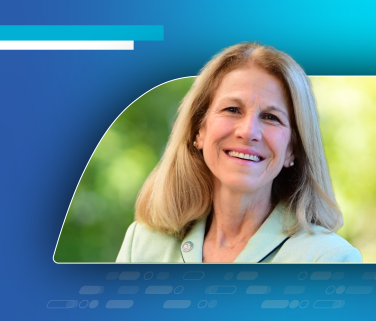“My father was an avid outdoorsman, so we were all surprised when he had a heart attack while hiking when he was only 59,” said CL, a patient living with cardiovascular disease. “Then I had a heart attack at 44. A few years later, my older sister had a heart attack too. She was only 50 and her cholesterol was high, even higher than mine.”
Dr. Mary McGowan, a lipid specialist, heard this type of story far too often early in her career, even in patients younger than CL. Since first heart attacks typically happen around age 65, Dr. McGowan was driven to find an answer.
The answer was lurking in patients’ genes. Patients like CL are born with a hereditary condition called familial hypercholesterolemia (FH) that causes high LDL (“bad”) cholesterol starting at birth, which can lead to cardiovascular disease, including heart attacks, at a very young age.
Dr. McGowan now serves as chief medical officer of the Family Heart Foundation, an advocacy group dedicated to timely identification and improved care for people with FH. She says the Foundation’s FIND (Flag, Identify, Network and Deliver) FH® initiative, which began with multi-year support from founding sponsor Amgen, is designed to help identify families across the U.S. who are at risk for FH.
Early diagnosis of FH has been challenging due to lack of pediatric lipid screening, despite clear guidelines recommending universal screening of all children between the ages of 9-11. This failure to screen means that only about 3 in 10 people with FH know they have it. The fact that elevated cholesterol is “silent” until it causes coronary artery disease means that often a person learns of their diagnosis only after a heart attack. Dr. McGowan says these missed diagnoses, which number around 1 million in the U.S. alone, are a big problem.
Building on 10 years of progress to improve FH diagnosis and care
The FIND FH process uses a machine-learning algorithm to analyze over 350 variables in each person’s electronic medical record and identify who might be at risk for FH. The Foundation estimates that physicians would need to order 2000 cholesterol panels in the general public or 250 cholesterol panels in people with known cardiac disease to perform the same task.1
“I was glad to finally have a name for my condition,” CL said. “I have three grown kids, and after meeting with Dr. McGowan, I hounded my kids to get checked for FH. The two that have FH both have kids of their own. So, my grandchildren are going to be getting checked for FH too.”
Working together to improve outcomes for families living with FH
The Family Heart Foundation has initiatives to continue to learn and improve the FIND FH initiative. The Foundation has brought together the five inaugural health systems that implemented FIND FH in a Collaborative Learning Network (CLN). The CLN allows the Foundation and health systems to solve problems together and to share and learn best practices from each other.
Another key to the success of FIND FH is a “lived experience” team of patient advocates who provide their perspectives on patient-facing material. “Their insights are especially helpful,” says Dr. McGowan, “with networking designed to reach everyone impacted by FH.”
“Advancements in data science, AI, medical science and medications to treat conditions like familial hypercholesterolemia give entire families the opportunity to take charge of their health,” says Dr. Jyothis George, Global and U.S. Therapeutic Head, General Medicine, at Amgen. “It’s wonderful to see the success of the FIND FH initiative in the 10 years since Amgen signed on as its founding supporter.”
“I feel motivated to take care of my health. It helped me to understand more about FH, a condition that I and some of my kids have had since we were born,” said CL. “And we need to find out about their kids. I wish I had known earlier about FH.”
Learn more about FH here.
- Behesti SO, et al J Am Coll of Cardiology 2020. 75(20):2553-2566





